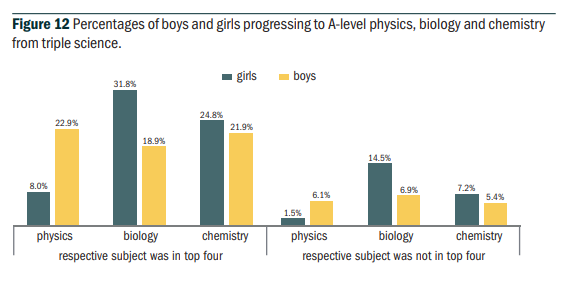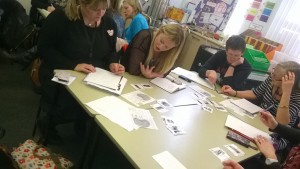Teaching Careers in Primary School
Our research at NUSTEM has shown that children have very gendered ideas about what jobs they want to do even before they leave primary school. We’ve been supporting primary school teachers to include careers-related learning into their teaching.
Last year NUSTEM in collaboration with the NELEP (and funded by the Careers and Enterprise Company) developed online CPD to help more teachers to bring careers into their lessons.
We’ll be running the CPD between October and January. There are three sessions and after each session teachers will be given an activity to do which helps to embed the learning from the session.
Ideally, we’d like teachers to sign up for all three sessions, although they do stand alone.
The first session is on Wednesday 21st October between 4 – 5.30pm and you can book using the eventbrite link here.
The next sessions are on
Wednesday 25th November, 4 – 5.30pm, Career aspirations in primary school
Wednesday 13th January, 4 – 5.30pm, Employability characteristics and role models.
Each session covers a different aspect of careers-related learning in primary school.
Session 1: Careers Education and Unconscious bias
This session provides an introduction to the gendered nature of subject and career choices that children and young people make, and how unconscious bias can contribute to this. We’ll also explore how to reduce these effects.
Gap task 1: Exploring unconscious bias in primary schools.
Use one, or more, of three analysis and reflection tools that look at different aspects of the school environment: Classroom Interactions Analysis Tool, Literature Analysis Tool, Display Content Analysis Tool
Session 2: Career aspirations in primary school
This session explores NUSTEM research on the career aspirations of children aged between 8 and 11. We’ll talk about the NUSTEM Primary Careers Tool – an online resource to support the inclusion of careers related learning into curriculum planning. The Tool is a database of over 100 different jobs which can be sorted by National Curriculum topic in Science and Maths. We’ll also show you a simple way of adding the job into lessons.
Gap task 2: Planning and teaching using the Primary Careers Tool
Session 3: Employability characteristics and role models
This session considers some of the characteristics that help to make people successful in their chosen careers. We’ll introduce the STEM Person of the Week resource and present findings from research on the use of role models and STEM Person of the Week.
Gap Task 3: Planning and teaching using STEM Person of the Week.
We hope to see you there!


 Evolution and Inheritance will become part of the statutory Science Curriculum for Year 6 students from September 2015. This session will show you ways to bring these tricky concepts to life through hands-on investigations and activities. The team at Reading have developed lesson plans designed to maintain children’s enthusiasm and progress their understanding of evolution while working scientifically. Many of these resources are free to access on their website, and additional resources will be provided in the session. The session also addresses common concerns teachers have about teaching evolution in the classroom and will suggest ways to respond to children’s and parents’ questions.
Evolution and Inheritance will become part of the statutory Science Curriculum for Year 6 students from September 2015. This session will show you ways to bring these tricky concepts to life through hands-on investigations and activities. The team at Reading have developed lesson plans designed to maintain children’s enthusiasm and progress their understanding of evolution while working scientifically. Many of these resources are free to access on their website, and additional resources will be provided in the session. The session also addresses common concerns teachers have about teaching evolution in the classroom and will suggest ways to respond to children’s and parents’ questions.
